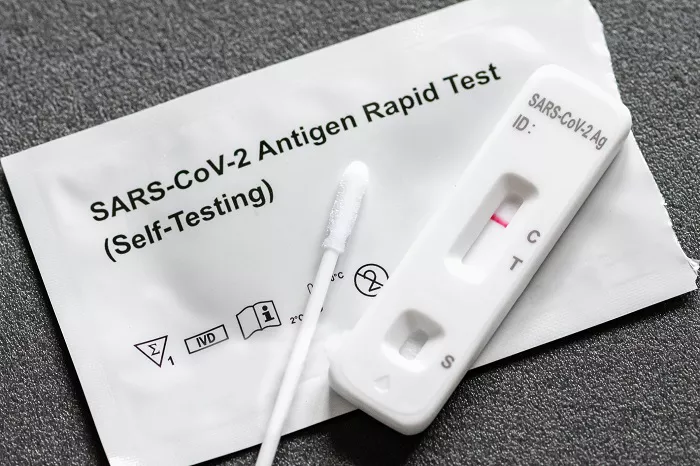Allergies are a common cause of sinus problems, including sinusitis and rhinitis. Sinus problems can cause a range of symptoms, including nasal congestion, headaches, and facial pain. Understanding which allergies cause sinus problems can help you identify the cause of your symptoms and seek appropriate treatment. In this article, we will explore the various allergies that can cause sinus problems.
What are sinus problems?
Sinus problems refer to a range of conditions that affect the sinuses, which are air-filled spaces in the bones of the face. The sinuses are lined with a thin layer of tissue called the mucosa, which produces mucus to help trap bacteria, viruses, and other particles. Sinus problems can occur when the sinuses become inflamed or infected, leading to symptoms such as nasal congestion, facial pain, and headaches.
How do allergies cause sinus problems?
Allergies cause sinus problems by triggering an immune response in the body. When you are exposed to an allergen, such as pollen or pet dander, your body produces antibodies that recognize and attack the allergen. This immune response can lead to inflammation in the sinuses, which can cause symptoms such as nasal congestion and facial pain.
What allergies cause sinus problems?
Pollen allergies
Pollen allergies, also known as hay fever or allergic rhinitis, are a common cause of sinus problems. Pollen is a fine powder produced by trees, grasses, and weeds, and is carried by the wind. When you inhale pollen, your body produces antibodies that trigger an immune response in the sinuses, leading to inflammation and symptoms such as nasal congestion, sneezing, and itchy eyes.
Dust mite allergies
Dust mites are tiny insects that live in household dust. They thrive in warm, humid environments and are commonly found in bedding, carpets, and upholstery. When you inhale dust mite allergens, your body produces antibodies that trigger an immune response in the sinuses, leading to inflammation and symptoms such as nasal congestion, sneezing, and itchy eyes.
Pet allergies
Pet allergies are caused by an allergic reaction to proteins found in the saliva, urine, and dander (dead skin cells) of dogs, cats, and other animals. When you come into contact with pet allergens, your body produces antibodies that trigger an immune response in the sinuses, leading to inflammation and symptoms such as nasal congestion, sneezing, and itchy eyes.
Mold allergies
Mold allergies are caused by an allergic reaction to the spores produced by mold, which are found in damp environments such as basements, bathrooms, and kitchens. When you inhale mold spores, your body produces antibodies that trigger an immune response in the sinuses, leading to inflammation and symptoms such as nasal congestion, sneezing, and itchy eyes.
Food allergies
Food allergies can also cause sinus problems in some people. When you eat a food that you are allergic to, your body produces antibodies that trigger an immune response in the sinuses, leading to inflammation and symptoms such as nasal congestion, sneezing, and itchy eyes. Common food allergens include peanuts, tree nuts, shellfish, and dairy products.
How are allergies that cause sinus problems diagnosed?
Allergies that cause sinus problems can be diagnosed through a combination of medical history, physical examination, and allergy testing. Your doctor will ask you about your symptoms, when they occur, and what triggers them. They may also perform a physical examination of your nose and sinuses to look for signs of inflammation or infection.
Allergy testing may be recommended to identify the specific allergens that are causing your sinus problems. There are several types of allergy testing, including skin prick testing and blood tests. Skin prick testing involves placing a small amount of allergen on your skin and then pricking the skin to allow the allergen to enter. If you are allergic to the allergen, you will develop a raised, red bump on your skin. Blood tests measure the amount of antibodies in your blood that are produced in response to specific allergens.
How are allergies that cause sinus problems treated?
Allergies that cause sinus problems can be treated through a combination of medication and allergen avoidance. Medications such as antihistamines, decongestants, and nasal corticosteroids can help to relieve symptoms such as nasal congestion, sneezing, and itchy eyes. Allergen avoidance involves taking steps to reduce your exposure to the allergens that trigger your symptoms. This may include using air filters, washing bedding and clothing regularly, and keeping pets out of certain areas of your home.
In some cases, immunotherapy may be recommended to treat allergies that cause sinus problems. Immunotherapy involves exposing you to gradually increasing doses of the allergen over time, in order to desensitize your immune system to the allergen. This can help to reduce your symptoms and improve your quality of life.
Conclusion
Allergies are a common cause of sinus problems, including sinusitis and rhinitis. Pollen allergies, dust mite allergies, pet allergies, mold allergies, and food allergies can all cause sinus problems by triggering an immune response in the sinuses. If you are experiencing symptoms of sinus problems, it is important to seek medical advice in order to identify the underlying cause of your symptoms and seek appropriate treatment. By understanding which allergies cause sinus problems, you can take steps to reduce your exposure to allergens and improve your quality of life.
[inline_related_posts title=”You Might Be Interested In” title_align=”left” style=”list” number=”6″ align=”none” ids=”5136,5133,5125″ by=”categories” orderby=”rand” order=”DESC” hide_thumb=”no” thumb_right=”no” views=”no” date=”yes” grid_columns=”2″ post_type=”” tax=””]
































